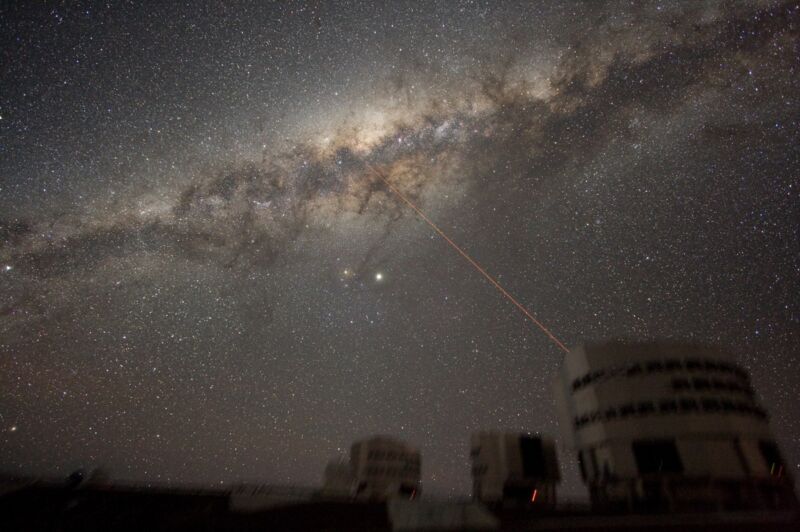Three scientists win Nobel Physics Prize for groundbreaking black hole work

Enlarge / Image of the night sky above Paranal, Chile, on July 21, 2007, showing the galactic center of the Milky Way. The laser creates a guide-star for the telescope. (credit: European Southern Observatory/Y. Beletsky)
The 2020 Nobel Prize in physics has been awarded to Roger Penrose "for the discovery that black hole formation is a robust prediction of the general theory of relativity." He shares it with Reinhard Genzel and Andrea Ghez "for the discovery of a supermassive compact object at the centre of our galaxy."
Penrose, the Emeritus Rouse Ball Professor of Mathematics at the University of Oxford, will receive half of the 10 million Swedish kronor (more than US$1.1 million) prize money. He helped solidify the theoretical foundation for black hole physics in the 1960s by providing the seminal mathematical proof that black holes were a direct consequence of general relativity.
Genzel is acting director of the Max Planck Institute for Extraterrestrial Physics in Germany and a professor at the University of California, Berkeley, while Ghez is a professor at the University of California, Los Angeles. They will each receive one-quarter of the prize money. Genzel and Ghez each lead astronomy groups that have mapped the orbits of stars closest to the center of our Milky Way—a region known as Sagittarius A*—giving us the best evidence to date that there is a supermassive black hole at our galaxy's center. That work was aided immeasurably by the development of advanced adaptive optics tools to counter the distorting effects of the Earth's atmosphere.
Read 15 remaining paragraphs | Comments
https://ift.tt/2Gqo4eS
from Ars Technica https://ift.tt/2GnB0Cf

No comments